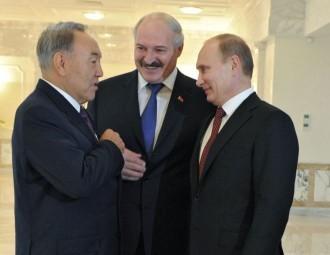Russian, Kazakh, Belarusan leaders are too meet in Minsk on April 29

They are to make a final step in the agreement on the formation of the Eurasian Economic Union.
These days the prime ministers of Russia, Belarus, and Kazakhstan are meeting in Moscow to discuss an agreement for the establishment of the Eurasian Economic Union (EES).
The Russian government's press service said Prime Minister Dmitry Medvedev is holding separate bilateral talks with his Kazakh and Belarusan counterparts, Karim Masimov and Mikhail Miasnikovich, respectively, RFE/RL reports.
The final polish to the draft treaty on establishing the Eurasian Economic Union will be given on 16 April, BelTA has learned.
“The work on the treaty’s text is close to completion but the devil is in the details as they say,” said the Russian Prime Minister. “We are taking care of these details. The details are rather important for all our countries”.
The Russian Prime Minister underlined that the Eurasian Economic Union Treaty is to come into force on 1 January 2015. The document is important and complicated, he added.
Let us recall that earlier this month EuroBelarus Information Service informed that Kazakh Foreign Minister Erlan Idrisov said the Russian, Belarusan, and Kazakh presidents would sign an agreement on the creation of the EES in May.
-
03.01
-
07.10
-
22.09
-
17.08
-
12.08
-
30.09








































